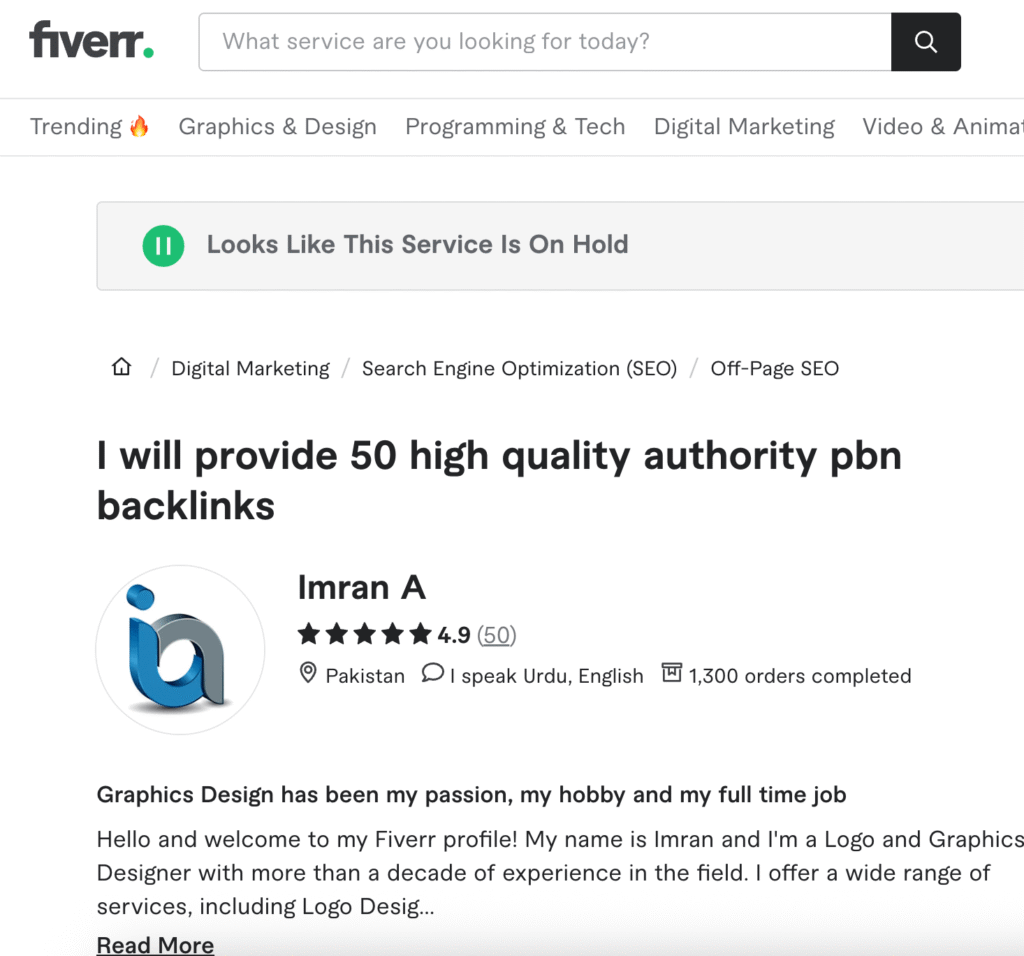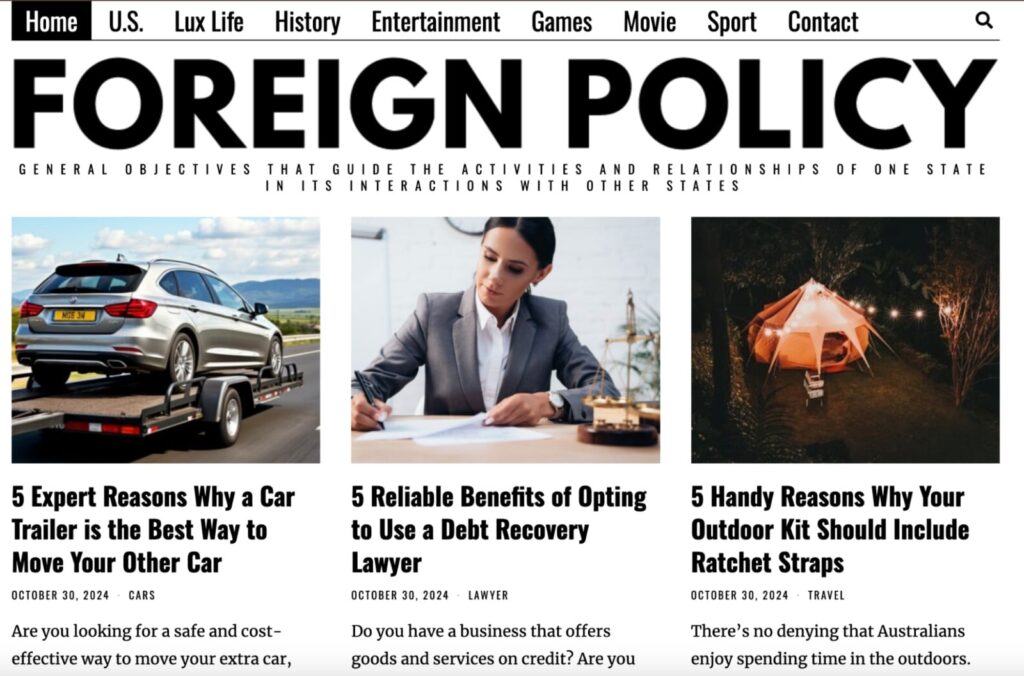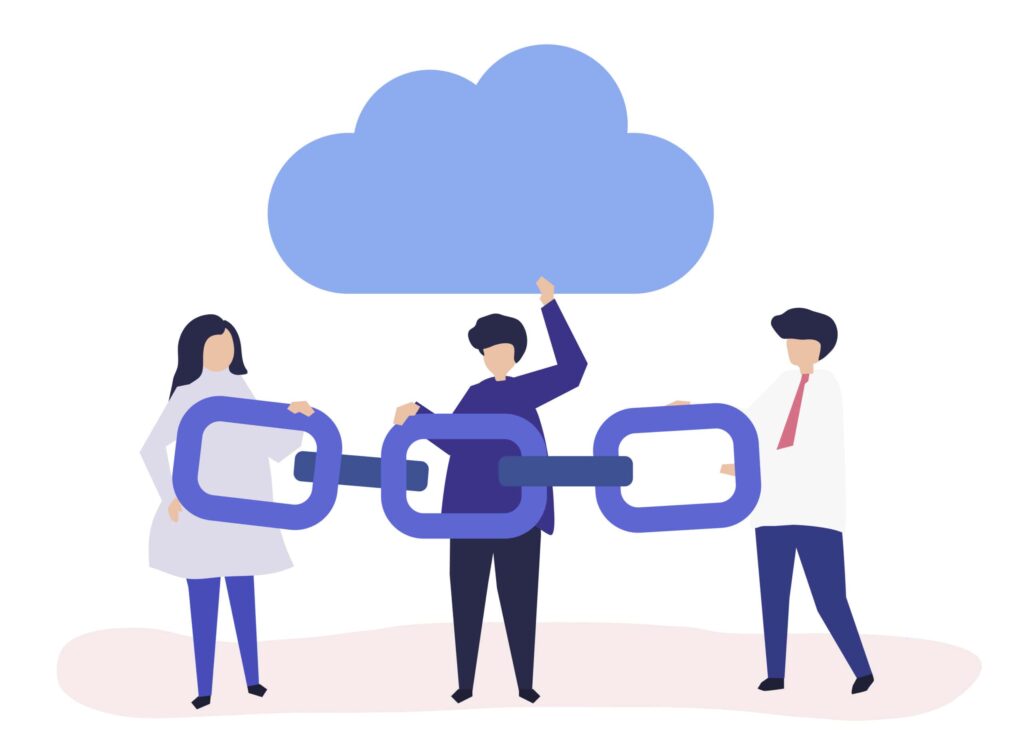Good backlinks can help your site rank higher. But shortcuts like PBN links (Private Blog Network links) can lead to serious trouble. PBNs may seem like a quick win, but they’re more like a trap and can harm your site’s future and damage your reputation.
If you’re wondering what PBN links are and whether they still work for SEO, this guide breaks it down clearly.
What Are PBN Links? (Private Blog Network Meaning Explained)
A Private Blog Network (PBN) is a group of websites created to link to a main site and artificially boost its SEO rankings. In simple terms, a PBN link is a backlink placed on a network of privately controlled websites to manipulate search results. These sites often:
- Have low-quality or thin content.
- Exist mainly to build links
- Try to trick search engines.
How PBNs Work?
PBNs operate by creating a network of privately owned websites that link back to a target site. These websites are often built using expired PBN domains with backlinks that still carry some authority, making them attractive for those trying to manipulate rankings. The primary goal is to create the illusion of a natural, authoritative backlink profile for the target website.
These interconnected sites are often called PBN networks, and they exist only to pass link authority to a target site.
However, Google has sophisticated algorithms designed to detect such manipulative tactics. When a PBN is identified, the target website can face severe penalties, including a significant drop in search engine rankings.
This makes PBNs a high-risk link-building tactic that can do more harm than good.
How to Get PBN Links?
There are three major ways to build PBN links:
1. Buy links from PBN sellers
Many shady vendors on SEO forums, marketplaces, freelance sites (e.g., BlackHatWorld, Fiverr), and Slack, Telegram, and Facebook groups sell PBN links in packages. They offer link-building packages like “10 PBN links for $50” or “500 high-DA PBN links for $200. You pay, and they add links to your site on their private network of domains (often with generic content and spammy anchor text).

It’s fast and cheap. No effort is needed to build relationships, create content, or do outreach. These offers promise quick ranking boosts through SEO PBN backlinks, especially to beginners chasing fast results.
These sellers often recycle domains within their network, making it easy for Google to spot patterns. The links appear unnatural with irrelevant niches, random anchor text, and poor content. If Google identifies these as link schemes, your site may be penalized with a manual action or algorithmic demotion.
2. Set up your own PBN
You can buy expired domains with existing backlinks and domain authority using tools like DomCop, ExpiredDomains.net, or auctions. Set up websites on these domains using different web hosting providers, IP addresses, and registrars to avoid detection. Post content having backlinks pointing to your “money site. The goal is to make it appear that these are independent, authoritative sites naturally endorsing the main site.

The primary advantage of building your own PBN is that you have complete control over the network, allowing you to add, remove, or edit links at any time. No need to rely on sellers or outreach. It’s more cost-effective over time to build large networks, as they avoid paying per link.
The risks of it are the same. Additionally, building and managing a PBN is both costly and time-consuming. It’s challenging to remain undetected as Google searches for footprints, such as shared IP addresses, hosting patterns, common CMS themes, and link patterns. Google can deindex your entire PBN within a moment and destroy everything, including your money site.
3. Hire SEO agencies that use PBNs (often without telling you)
You hire an SEO agency promising fast, cheap, guaranteed rankings. They promise high-quality link-building services and methods, but behind the scenes, they build PBN links to deliver links. They may bundle these links into reports with vague metrics (e.g., “50 backlinks this month!”) without showing actual sources and their credibility.
Many agencies offer “too good to be true” packages: low prices, fast timelines, guaranteed rankings. Businesses that don’t understand link building often trust the agency’s expertise and fall victim to the agency’s link-building scam.
Unfortunately, you may not even realize your site is exposed to risk, even after paying the premium link price. When Google detects PBN links, it’s your site, not the agency, that suffers. Recovery will cost you more than that.
What are not PBN Links?
Some link-building tactics look like PBNs but are not in reality. These link-building strategies are safe and effective to use. This PBN-like approach is legitimate because it is based on real businesses, editorial value, and transparent ownership.
Owning multiple websites and interlinking them isn’t automatically a PBN tactic. The difference comes down to purpose, transparency, and quality. For example, Ziff Davis owns a network of high-authority websites, including PCMag.com, Mashable, and IGN.
These sites sometimes link to each other, which is helpful because every site has real authority, content, and an audience. While Private Blog Network (PBN) exists solely to manipulate search rankings by linking back to the main “money site.”
Are Link Farms the same as PBNs?
No, link farms and PBNs (Private Blog Networks) are not the same, though both are manipulative link schemes that violate Google’s guidelines.
Here are the major differences between PBN and Link Farm:
| Aspect | Link Farm | PBN (Private Blog Network) |
| Structure | All sites link to each other or central targets | Many sites link to specific target sites only |
| Ownership | Can be owned by many or automated at scale | Privately owned/controlled by one entity |
| Content quality | Almost no content; pure link spam | Low-quality or thin content that pretends to be real |
| Link pattern | Massive, circular interlinking | Links go from network sites to the money site |
| Scale | Large (hundreds or thousands of domains) | Small to medium (typically 10–100 domains) |
| Detection risk | Very easy for Google to spot due to obvious patterns | Slightly harder to detect but still risky |
Google considers both PBNs and link farms to be link schemes, similar to practices explained in our guide on link farming. Using either tactic can lead to:
- Manual actions (penalties)
- Loss of rankings
- De-indexing of the site
- Long-term damage to domain trust
How Google Treats PBN Links
PBNs can help you achieve short-term rankings, but Google penalizes PBN users, as it sees them as a manipulative black-hat tactic and against its guidelines. If Google spots them, your site can face:
- Big drops in rankings
- Penalties that take months or years to recover from
- A damaged reputation online

Google explicitly warns against such artificial link schemes and uses intelligent algorithms to identify PBNs. It looks for signs like:
- Low-quality, keyword-stuffed content
- Target page freshness rate.
- Sites with many links to unrelated topics
- Lots of outbound links to random commercial sites
- Sites with little or no real traffic
PBN Site Example: A site called foreignpolicyi.org appears to be a normal finance blog. However, a closer look reveals poor content and numerous strange links to e-commerce or tech sites. This is a red flag for a PBN.

Consider a network of sites all linking back to the same commercial site, using repetitive anchor texts and pointing to pages unrelated to their niche. These links might seem beneficial to an SEO novice, but they can spell disaster for a business if Google discovers the network and penalizes the linked website.
Should You Build PBN Links for SEO Rankings?
Private Blog Networks (PBNs) are a black-hat link-building tactic used to manipulate search engine rankings. A PBN is a collection of privately owned websites that exist solely to link back to a target website to boost its authority and search engine rankings artificially.
Website owners often employ these networks as a quick way to climb the SERPs. However, the use of PBNs is fraught with risks and can lead to severe penalties. While the allure of rapid SEO gains might be tempting, the potential for long-term damage makes PBNs a risky proposition.
While some agencies promote PBNs as a quick link-building tactic to increase rankings, the short-term gains aren’t worth the potential penalties. Here’s why:
- PBNs can lead to penalties: Google doesn’t like unnatural link schemes. It has advanced systems to spot and punish sites using PBNs.
- PBNs hurt your credibility: A strong site earns backlinks from respected websites. PBNs do the opposite, linking from low-quality, unrelated sites.
- PBNs don’t work in the long run: PBNs might help at first, but once Google detects them, your site can lose its rankings. Fixing this damage is hard and expensive.
Imagine investing thousands of dollars in SEO, only to see your rankings tank because your link-building agency relied on PBNs. That’s the unfortunate reality for many businesses that fall for the allure of fast SEO results.
Real PBN Penalties:
- BuildMyRank : A massive PBN network used by many SEOs was deindexed overnight, causing thousands of sites to lose rankings.
- Matthew Woodward’s case study: His test site using a small PBN gained rankings briefly but was eventually penalized, requiring months of cleanup.
Beyond the immediate penalties, using PBNs can also damage a website’s reputation and credibility with search engines, making it much harder to recover and regain lost rankings. The long-term impact of these penalties can be devastating, underscoring the importance of adhering to ethical, white-hat SEO practices.
Why PBN Links Are Not a Sustainable SEO Strategy
PBNs are not a long-term link building strategy because they rely on manipulative tactics that are easily detected. Here are some reasons why PBNs fall short as a long-term SEO strategy:
- High Risk of Penalties: Search engines continually improve their algorithms to detect and penalize manipulative link-building tactics like PBNs. The risk of being caught and penalised is high, making PBNs an unreliable strategy.
- Lack of Quality and Relevance: PBNs often prioritize quantity over quality and relevance. This can lead to penalties, as the links appear unnatural and manipulative.
- Short-Term Gains, Long-Term Losses: While PBNs might offer short-term improvements in search engine rankings, the long-term consequences can be severe. Penalties can result in a significant loss of rankings and traffic, making it difficult to recover.
- Damage to Reputation: Using PBNs can damage a website’s reputation with search engines and users. Trust and credibility are crucial for long-term SEO success, and PBNs undermine these essential factors.
How to Identify Private Blog Networks and Toxic SEO Agencies
If an SEO agency promises instant, guaranteed results through their link-building efforts, take it as a warning sign. PBN backlinks often come from privately owned websites created to boost search engine rankings artificially. Here’s a closer look at common red flags of agencies that rely on PBNs:
- Unrealistic Promises: Agencies that offer guaranteed rankings within a short timeframe may be cutting corners. Genuine SEO agencies understand that high-quality SEO is a long-term investment. Be wary if an agency claims it can catapult your site to the top of Google in just a few weeks.
- Vague Link-Building Practices: Legitimate SEO agencies will gladly walk you through their link-building strategy. Toxic agencies, however, are often vague and resistant to sharing specifics. Ask where they plan to source backlinks, what sites will link to you, and whether they prioritise relevancy and authority.
- Low-Pricing Packages: Quality SEO services come at a cost because they require time, expertise, and reputable industry connections. PBN-dependent agencies often offer low-cost packages that rely on cheap, easily accessible PBNs rather than genuine, high-quality outreach.
- Overemphasis on the Volume of Links: Toxic agencies might boast about delivering hundreds of backlinks quickly, whereas genuine agencies focus on a smaller number of high-quality, contextually relevant links. Remember, one backlink from a high-authority site can be more valuable than hundreds from low-quality sites.
- Lack of Reporting Transparency: A reputable link building agency will provide detailed reports about your backlinks, including the source, domain authority, and relevance of each link. PBN-using agencies typically provide vague or inconsistent reports to avoid revealing the true nature of their link sources.
Must Read: How to Choose A Trustworthy Linkbuilding Agency
How to Remove and Disavow Toxic PBN Links
- Audit your backlink profile — use tools like Google Search Console, Ahrefs, SEMrush, or other backlink monitoring tools.
- Identify PBN links — Look for patterns: irrelevant domains/pages, thin content, excessive (or irrelevant) exact match anchors.
- Attempt removal — Reach out to webmasters (optional, but good practice).
- Disavow toxic links — Compile a disavow file and submit it via Google Search Console. Disavowing is a critical step that could hurt your website. You can hire a link-building expert for that.
- Monitor progress — Track rankings and the status of manual actions and backlink profile.
- Request Reconsideration — If penalized, submit a reconsideration request after completing the cleanup.
- Focus on earning quality backlinks — Build a sustainable backlink strategy.
PBN Alternatives To Build Quality Backlinks
Building links through legitimate strategies is safer than using Private Blog Networks (PBNs). Now that you know the risks of PBNs, let’s focus on safer, more effective alternatives to build links and create a strong backlink profile:
Guest Blogging on Reputable Sites
Reach out to reputable blogs and websites within your niche to contribute guest posts and build authoritative links. A well-written article on a high-quality blog can bring both SEO benefits and referral traffic.
Creating High-Value Content
Content that truly educates, entertains, or engages is highly likely to be shared and linked to organically, resulting in high-quality links. Quality content attracts natural backlinks, whether it’s an in-depth guide, a case study, or a visual infographic.
Engage in Industry Collaborations
Partnering with other businesses, industry influencers, and organisations can yield authoritative links. For example, co-hosting a webinar or creating a joint e-book with a well-respected brand is an effective way to earn high-quality backlinks.
Focus on PR-Driven Link Building
Digital PR is another safe, scalable way to build high-quality links. This involves pitching story ideas to journalists who reference your business or content in their articles and providing natural, high-authority links.
Why Investing in Quality SEO Matters for Search Engine Rankings
Quality SEO is a long-term game that prioritises sustainable growth and improved search rankings over short-lived results. By investing in reliable, white-hat SEO practices, you can avoid the pitfalls of PBNs and build a website that Google rewards. A healthy backlink profile can withstand Google’s ever-evolving algorithm updates, giving your site lasting visibility and authority in your industry.
Final Thoughts
Think of SEO as building a solid foundation for your online business. Going the PBN route might sound tempting with its promise of quick wins, but here’s what you’re risking:
- You’ll constantly be one Google update away from a penalty.
- You’ll lose credibility with your audience (and Google).
- You’ll waste time and money fixing the damage when you could’ve been building something sustainable.
- The successful sites don’t cut corners; they invest in strategies that last.
Remember, real SEO results don’t happen overnight, but they do last. Think long-term, invest in strategies you can stand by, and set your business up for true success.
Ready to start? Connect with Tanot Solutions as we understand the value of sustainable growth.
Frequently Asked Questions (FAQs)
How can I tell if a link-building agency is using PBNs without my knowledge?
Some agencies hide PBN use by reporting generic link numbers instead of actual sources. Warning signs include promises of instant rankings, low-cost bulk backlinks, vague reporting, and links from unrelated or low-quality sites. Always ask agencies for verified sources, domain authority, and relevance details before trusting them.
Can a website recover after receiving a Google penalty from PBN links?
Yes, but recovery can be slow and costly. It requires auditing your backlink profile, removing or disavowing toxic PBN links, submitting a reconsideration request to Google, and building new, high-quality links. Recovery time varies depending on the number of bad links and the severity of the penalty.
Are PBNs ever worth the risk for small or new websites?
For new or small websites, using PBNs is especially risky. Short-term gains may seem appealing, but even a few detected links can cause penalties and harm credibility. Investing in safe, white-hat link-building strategies like guest posts, content collaborations, and PR-driven links is far more sustainable.
What patterns in backlinks suggest a site might be part of a PBN?
Common red flags include multiple backlinks from sites with similar design or CMS templates, low or no traffic, thin content, irrelevant niches, repetitive anchor text, and links pointing only to one target site. Monitoring backlink patterns regularly helps prevent penalties before they happen.
How do PBN links affect my website’s reputation with users and search engines?
PBN links may boost rankings temporarily, but they damage credibility. Users who click low-quality or spammy sites lose trust in your brand. Search engines also view these links as manipulative, which can result in penalties, algorithmic demotions, and long-term loss of authority.
Are there safer ways to get high-authority backlinks like those from PBNs claim to offer?
Yes. You can earn high-authority links through guest posting on niche-relevant sites, creating in-depth guides or research content that naturally attracts links, partnering with industry influencers, or leveraging PR campaigns. These methods are safe, sustainable, and often more valuable than PBN links.
How can I prevent PBN links from hurting my SEO in the future?
Focus on building a diverse, natural backlink profile. Avoid agencies or vendors promising bulk PBN links, regularly audit your backlinks using tools like Ahrefs or SEMrush, disavow suspicious links, and prioritize quality over quantity. Sustainable SEO practices help protect your site from penalties and algorithm updates.




